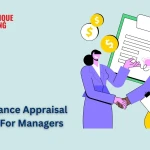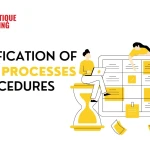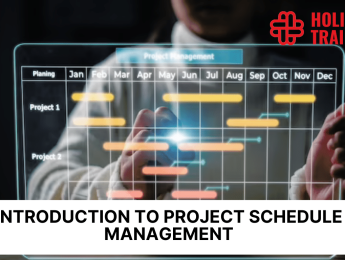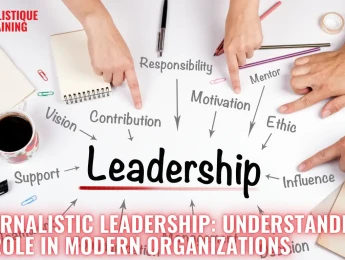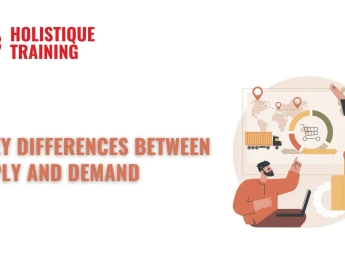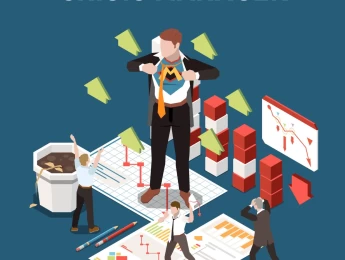Introduction
A supervisor plays a key role in any organization by overseeing daily operations, managing teams, and ensuring tasks are completed efficiently and effectively. They act as a bridge between employees and management, ensuring smooth communication and workflow. Being a successful supervisor requires leadership, problem-solving skills, and the ability to motivate a team.
In this article, we will highlight key aspects of the supervisor role, outline essential responsibilities, and provide practical tips to help you excel in a supervisor interview. Whether you're applying for your first supervisory position or looking to enhance your interview skills, this guide is designed to support your journey.
Key Responsibilities of a Supervisor
Supervisors play a critical role in ensuring that daily operations run smoothly and teams perform at their best. Below are the key responsibilities of a supervisor, along with brief descriptions of each to highlight their importance in the workplace.
Responsibility | Description |
Team Management | Leading and guiding team members to achieve goals. |
Task Delegation | Assigning tasks based on skills and project needs. |
Performance Monitoring | Evaluating employee performance and providing feedback. |
Conflict Resolution | Addressing and resolving workplace conflicts. |
Reporting to Management | Communicating updates and progress to higher management. |
Training and Development | Supporting staff growth through training opportunities. |
Top Skills Every Supervisor Needs
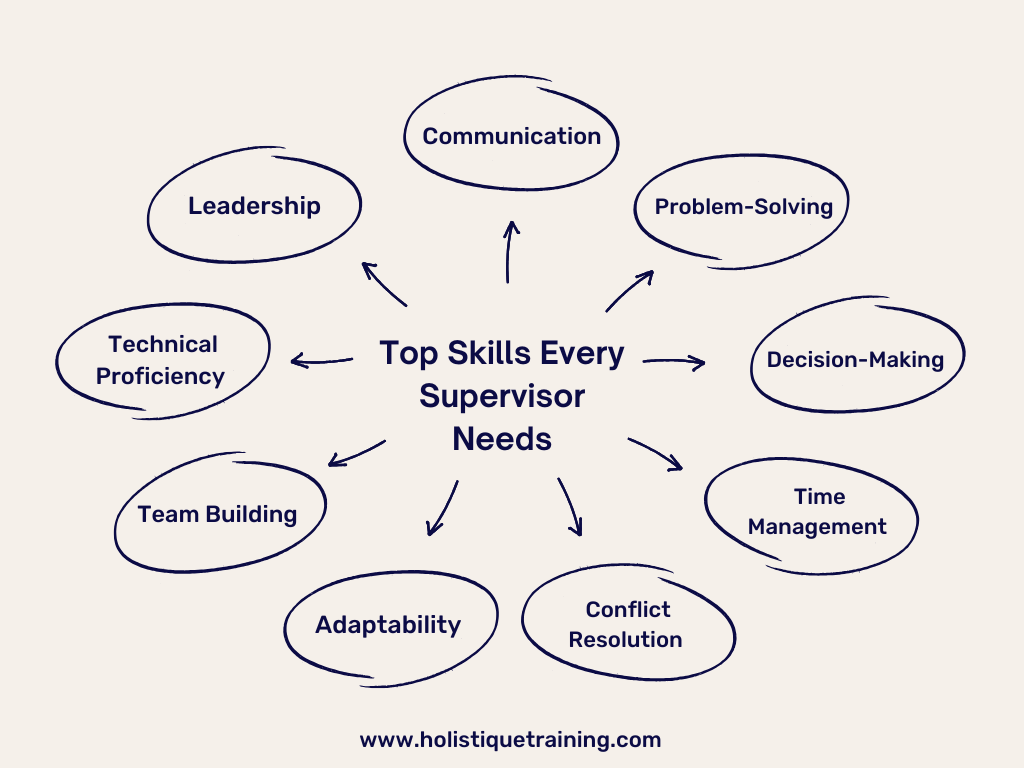
Leadership
The ability to inspire, motivate, and guide a team toward shared objectives is at the core of effective leadership. It involves setting a clear vision, modeling desired behaviours, making strategic decisions, and empowering team members to contribute their best. Strong leaders build trust and create an environment where individuals feel valued and supported.
Communication
Effective communication means expressing ideas, expectations, and feedback clearly and confidently, both verbally and in writing. It also involves active listening to understand team members’ needs, concerns, and suggestions. Clear communication ensures alignment, minimizes misunderstandings, and strengthens relationships within the team.
Problem-Solving
Supervisors often face challenges that require quick assessment, root-cause analysis, and the development of practical solutions. This skill demands creativity, logical thinking, and composure under pressure to resolve issues efficiently without disrupting workflow.
Decision-Making
Making informed, timely decisions is crucial for supervisors. This involves gathering relevant information, evaluating options, anticipating outcomes, and choosing the best course of action that aligns with both team and organizational objectives.
Time Management
Managing time effectively means setting priorities, allocating resources appropriately, and ensuring that tasks and projects are completed on schedule. Good time management helps supervisors handle multiple responsibilities efficiently while maintaining quality and reducing stress.
Conflict Resolution
Workplace conflicts are inevitable, and supervisors must handle them calmly and objectively. This skill involves facilitating constructive discussions, addressing underlying issues, and guiding parties toward mutually acceptable solutions to maintain team harmony and productivity.
Adaptability
Supervisors must remain flexible and open to change, whether in response to shifting priorities, new processes, or evolving team dynamics. Adaptability allows them to guide their teams smoothly through transitions and maintain performance under varying circumstances.
Team Building
Fostering a cohesive and motivated team requires recognizing individual strengths, encouraging collaboration, building trust, and creating opportunities for growth and engagement. Effective team building strengthens morale and enhances overall performance.
Technical Proficiency
A solid understanding of industry-specific tools, technologies, and processes enables supervisors to guide their teams effectively. Technical proficiency helps in resolving issues, supporting team members with their tasks, and ensuring the delivery of high-quality results.
Seeking a supervisor position?
Get ready for your interview with our comprehensive guide featuring the top 30 supervisor-specific interview questions. You'll also find expert tips and sample answers to help you deliver confident and effective responses.
1. What leadership style do you follow as a supervisor?
Suggested Answer:
“My leadership style is a combination of coaching and democratic leadership. I believe in empowering my team by providing guidance, setting clear expectations, and encouraging open communication. I also adapt my approach based on the situation and team dynamics.”
Tip: Highlight how your leadership approach aligns with team motivation and productivity.
2. How do you handle an underperforming employee?
Suggested Answer:
“I first identify the root cause of underperformance through one-on-one discussions. I provide constructive feedback, set clear performance expectations, and offer training or mentoring if needed. If the issue persists, I follow company protocols for performance improvement plans.”
Tip: Show that you handle performance issues proactively and fairly.
3. How do you ensure your team meets deadlines?
Suggested Answer:
“I use a structured approach, setting clear goals, prioritizing tasks, and monitoring progress regularly. I encourage collaboration, provide support when needed, and ensure employees understand their responsibilities to meet deadlines efficiently.”
Tip: Demonstrate organizational and time management skills.
4. How do you handle conflicts among team members?
Suggested Answer:
"I encourage open communication and mediate conflicts professionally. I listen to both sides, identify the root cause, and work towards a mutual resolution that benefits both the team and the company."
Tip: Show that you handle conflicts diplomatically and fairly.
5. How do you motivate your team?
Suggested Answer:
“I recognize and appreciate employees’ contributions, provide growth opportunities, and maintain a positive work environment. I also set challenging but achievable goals to keep them engaged.”
Tip: Employers want leaders who inspire their teams. An article published by BBC Bitesize showed that motivated staff will lead to increased productivity, lower absenteeism and better reputation.
6. What strategies do you use for effective delegation?
Suggested Answer:
“I assess team members’ skills and workload before delegating. I provide clear instructions, set realistic expectations, and encourage accountability while offering support when needed.”
Tip: Showcase your ability to distribute work efficiently.
7. How do you handle a sudden increase in workload?
Suggested Answer:
“I prioritize tasks, delegate effectively, and adjust team workflows to manage the workload efficiently. If needed, I communicate with management for additional resources or overtime approvals.”
Tip: Show that you stay calm and strategic under pressure.
8. Can you describe a time you implemented a process improvement?
Suggested Answer:
“At previous company, I noticed inefficiencies in (specific process). I introduced “new method”, which resulted in an X% improvement in productivity and reduced errors.”
Tip: Use measurable results to demonstrate your impact.
9. How do you handle an employee who resists feedback?
Suggested Answer:
“I provide feedback in a constructive and supportive manner. If resistance continues, I have a direct conversation to understand their concerns and encourage a growth mindset.”
Tip: Show that you can coach employees effectively.
10. How do you ensure quality control in your team’s work?
Suggested Answer:
“I set clear quality standards, conduct regular reviews, and provide training when needed to maintain high standards of work.”
Tip: Employers want supervisors who maintain excellence.
11. How would you handle an employee who consistently arrives late?
Suggested Answer:
“I would first have a private conversation with the employee to understand if there is an underlying issue causing the tardiness. If it’s a recurring problem, I would remind them of company policies, set clear expectations, and if needed, implement a corrective action plan. I also believe in recognizing and rewarding punctuality to encourage a culture of accountability.”
Tip: Show that you handle the issue fairly and proactively while maintaining company standards.
12. How do you handle a situation where upper management changes a policy your team dislikes?
Suggested Answer:
“I would communicate the change clearly, explaining the reasons behind it and how it benefits the company. If my team has concerns, I would listen and provide reassurance while finding ways to ease the transition. If necessary, I would relay constructive feedback to management to advocate for my team.”
Tip: Demonstrate your ability to balance company decisions with employee concerns.
13. Can you give an example of a time you successfully resolved a team conflict?
Suggested Answer:
“In my previous role, two team members had a disagreement that was affecting productivity. I brought them together in a private setting, listened to both perspectives, and facilitated a discussion to find common ground. By focusing on teamwork and shared goals, I helped them resolve their differences, and they were able to collaborate effectively afterward.”
Tip: Use a real-life example to showcase your conflict resolution skills.
14. How do you handle an employee who does not follow instructions?
Suggested Answer:
“I first ensure that my instructions were clear and that the employee understood them. If the issue persists, I address it directly, reminding them of expectations and offering guidance if needed. If it becomes a pattern, I document the behavior and take appropriate disciplinary action as per company policy.”
Tip: Show that you enforce rules firmly but fairly while providing support.
15. What steps do you take to onboard and train new employees?
Suggested Answer:
“I create a structured onboarding plan that includes company orientation, job-specific training, and mentorship opportunities. I ensure that new hires understand their roles and provide continuous feedback to help them adjust smoothly.”
Tip: Employers want supervisors who can develop and retain talent effectively.
talent-management-within-a-diverse-team
16. How do you track team performance and ensure goals are met?
Suggested Answer:
“I use KPIs, performance metrics, and regular check-ins to monitor progress. I also encourage self-assessment and provide constructive feedback to help team members stay on track and improve where needed.”
Tip: Show that you are data-driven and proactive in managing performance.
17. What do you do if an employee is not a team player?
Suggested Answer:
“I would address the issue in a private discussion, helping them understand the importance of teamwork. I would also encourage collaboration through team-building activities and set clear expectations for cooperation.”
Tip: Employers want supervisors who can foster a positive team culture.
18. How do you balance being approachable while maintaining authority?
Suggested Answer:
“I maintain an open-door policy and encourage my team to come to me with concerns. At the same time, I set clear expectations and enforce company policies consistently. This balance helps me earn both respect and trust.”
Tip: Show that you can be both a leader and a supportive mentor.
19. Have you ever had to discipline an employee? How did you handle it?
Suggested Answer:
“Yes, I once had an employee who repeatedly missed deadlines. I first provided verbal feedback and support, but when the issue persisted, I followed the company's formal disciplinary process. I ensured the employee understood the consequences while offering guidance to improve.”
Tip: Show that you handle discipline professionally and constructively.
20. How do you deal with workplace stress as a supervisor?
Suggested Answer:
“I prioritize tasks effectively, delegate responsibilities, and encourage my team to maintain a healthy work-life balance. I also practice stress management techniques, such as staying organized and focusing on solutions rather than problems.”
Tip: Demonstrate that you can stay composed and lead under pressure.
21. Why do you want to work for this company as a supervisor?
Suggested Answer:
“I admire this company’s commitment to [mention a company value, such as innovation, or employee development]. As a supervisor, I believe my leadership style and experience align with your goals, and I am excited about the opportunity to contribute to the team’s success while fostering a positive work environment.”
Tip: Research the company and mention specific values or initiatives that resonate with you.
22. How do you align team goals with company objectives?
Suggested Answer:
“I ensure my team understands how their work contributes to the company’s broader mission. I break down company goals into actionable team objectives, provide regular updates, and recognize achievements to keep motivation high.”
Tip: Show that you understand the bigger picture and can keep your team focused on business priorities.
23. How do you handle budget constraints while maintaining productivity?
Suggested Answer:
“I prioritize tasks based on impact and look for cost-effective solutions without compromising quality. I also encourage resourcefulness within my team and communicate with management to find ways to optimize productivity within budget limitations.”
Tip: Employers want supervisors who can manage resources efficiently.
24. What’s the biggest challenge supervisors face today?
Suggested Answer:
“One of the biggest challenges is managing diverse teams with different working styles and expectations. To overcome this, I focus on clear communication, adaptability, and creating an inclusive work environment where everyone feels valued.”
Tip: Show that you are aware of modern leadership challenges and adaptable solutions.
25. How do you handle employee requests for promotions or raises?
Suggested Answer:
“I evaluate each request based on performance, skills, and company policies. I provide honest feedback, highlight areas for improvement if necessary, and advocate for deserving employees when appropriate.”
Tip: Employers want supervisors who can fairly assess and support employee growth.
26. What’s your approach to team-building activities?
Suggested Answer:
“I believe in creating a strong sense of teamwork through both structured and informal activities. I organize team-building exercises, encourage collaboration on projects, and foster a culture of mutual support and recognition.”
Tip: Show that you understand the importance of team cohesion.
27. How do you prepare for annual performance reviews?
Suggested Answer:
“I track employee performance throughout the year using objective metrics and regular feedback sessions. Before the review, I gather relevant data, assess progress, and prepare constructive feedback to ensure the process is meaningful and helps employees grow.”
Tip: Employers want supervisors who take performance evaluations seriously.
28. How do you manage remote or hybrid teams?
Suggested Answer:
“I use clear communication, regular check-ins, and digital collaboration tools to ensure productivity and engagement. I also set clear expectations and encourage team members to stay connected despite physical distance.”
Tip: Highlight adaptability and experience with remote team management.
29. What’s your long-term career goal as a supervisor?
Suggested Answer:
“I aim to continue growing as a leader, developing my skills in people management and operational efficiency. In the long term, I hope to take on greater responsibilities, such as a managerial or departmental leadership role, while contributing to my team’s success.”
Tip: Show ambition while ensuring your goals align with company growth.
30. Do you have any questions for us?
Suggested Answer:
“Yes, I’d love to learn more about the team I’d be supervising. Can you share insights on the company’s leadership development programs?”
Tip: Always prepare thoughtful questions to show genuine interest in the company.
Conclusion
The role of a supervisor is pivotal in any organization, ensuring that goals are met, teams are motivated, and productivity is maintained. As we've discussed in this article, preparing for a supervisor interview requires a combination of leadership knowledge, problem-solving skills, and communication abilities. By understanding the top 30 supervisor interview questions and crafting thoughtful, strategic responses, you can showcase your readiness to take on this responsibility.
For more helpful resources and career advice, subscribe to our newsletter to stay updated with the latest insights.






